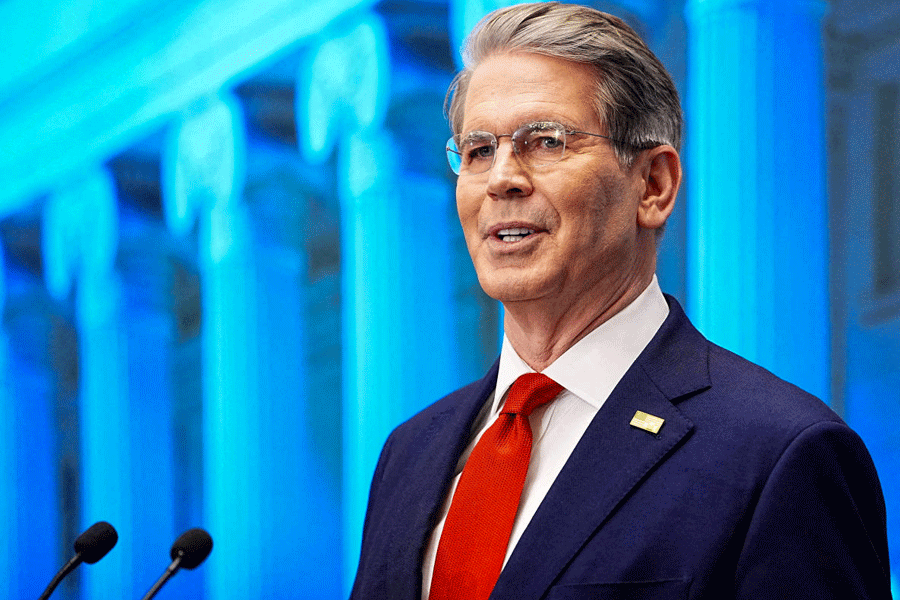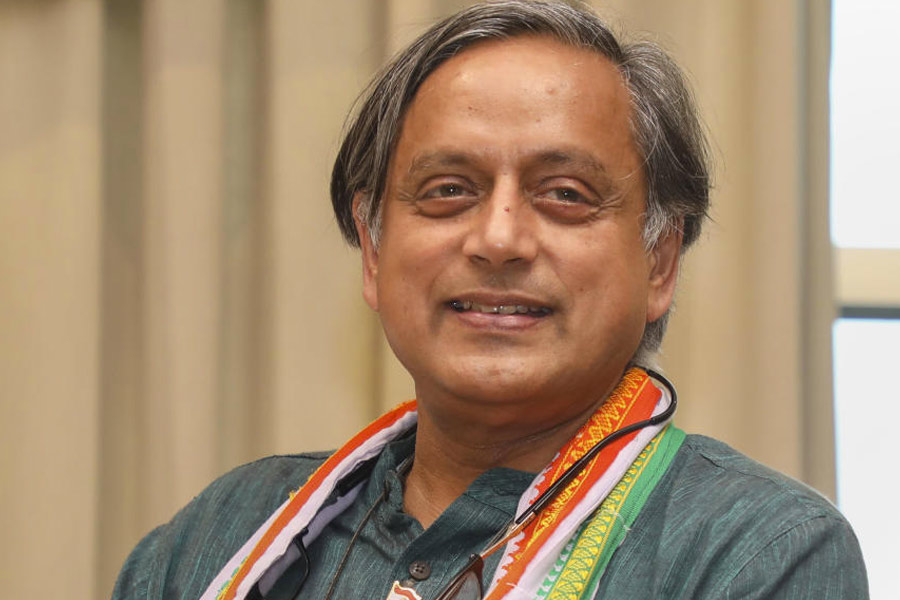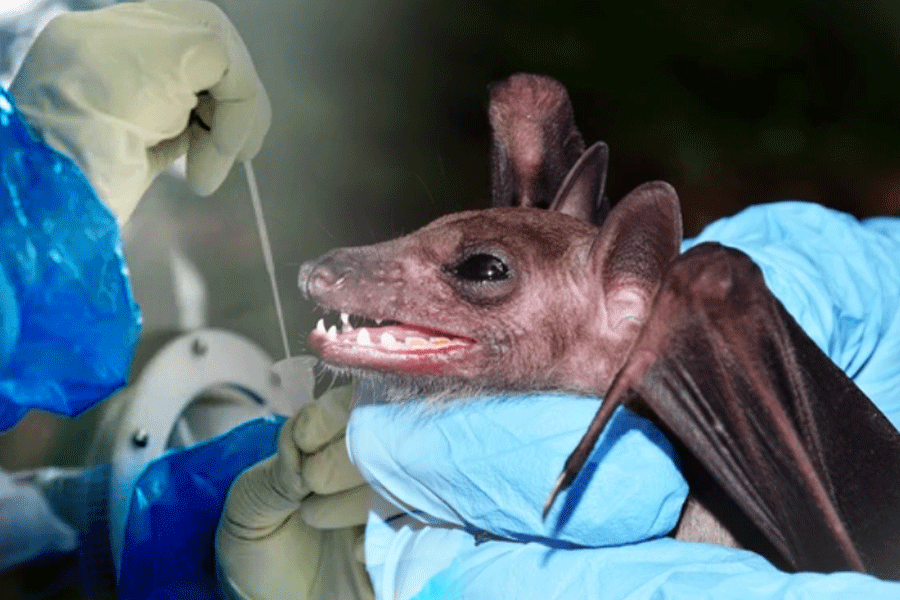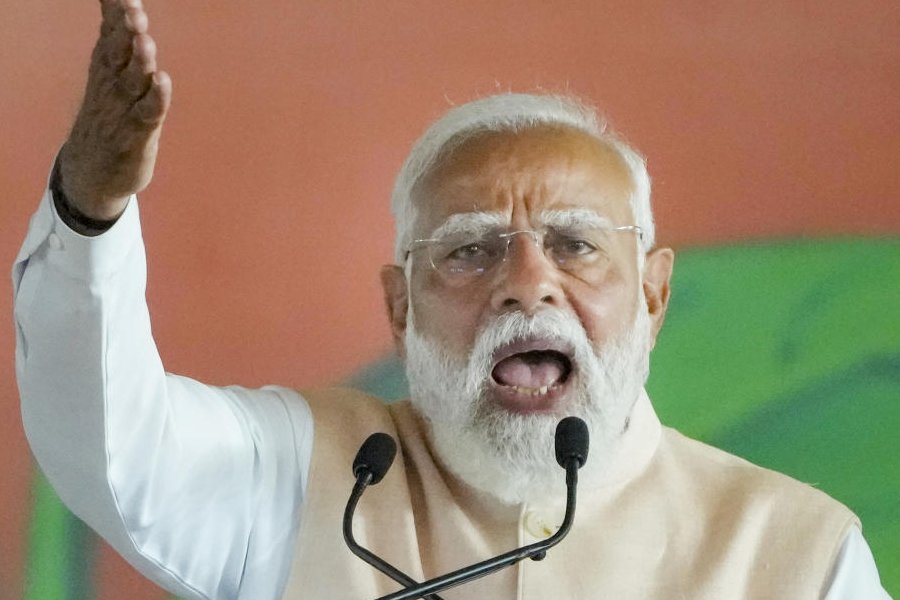 |
| Koushik Bhattacharjee doing his riyaaz. Picture by Anup Bhattacharya |
Music runs in his blood. His grandfather, Manindra Bhattacharjee was a well-known Dhrupad singer, who was associated with the Andul Kali Kirtan Samity. His father, Pataki Bhattacharjee was also a kheyal singer, who was known in Andul and adjoining areas for his talent. And so Koushik Bhattacharjee followed in their steps too. He is a regular artiste of the All India Radio and an empanelled artiste of the Indian Council for Cultural Relations (ICCR). He also teaches music on radio on Gyan Bani (105.4 FM) where he gives tips to and teaches students through telephonic lessons.
Koushik’s father had established Manindra Sangeet Tirtha, a school for Indian classical music at Andul in the name of his grandfather in 1970. Koushik’s initial training was, obviously, from his father after which he went to Sangeet Research Academy (SRA) where he trained under Pandit Arun Bhaduri. After a few years, he became the disciple of Pandit K G Shinde and also trained under Pandit Sunil Bose. “I follow mainly the Kirana gharana but since I trained under different gurus, I blend the styles together,” said Koushik. Being a good student, Koushik achieved highest rank, A Top, when he passed out of SRA in 2001. “I had already started performing professionally since 2000. I also compose music, mainly fusion, because that is the trend these days,” said Koushik. Although his grandfather and father were closely associated with Andul Kali Kirtan Samity, Koushik has not managed to hold on to that tradition. “Times have changed and I earn a living by teaching music at my school and also to students who live in Calcutta. Singing at Andul Kali Kirtan Samity is a voluntary service and I cannot always match my timings with their programmes,” said Koushik.
As a professional artiste, Koushik has performed at various music conferences, specially at the Dover Lane Music Conference. He is also a teacher at the Dover Lane Music Academy. He has performed at the All India Music Conference held in Delhi, Uttarpara Sangeet Chakra, ICCR music conferences and so on. Abroad, Koushik has been to various Indian classical music programmes across the world in Europe, USA and the UK. In 2004, he performed at the World Music Festival in Oslo, Norway and music festivals in France and Germany. In 2008, he was invited to perform at the Indian Classical Music and Dance Conference. Last year, he represented India at the Oslo Opera. He received the Surmani award from the Sur Singar Samsad in Mumbai and the Vocational Award 2008 from the Rotary Club of Salt Lake City, Calcutta.
A significant limp in his left leg caused by polio when he was an infant does not stop Koushik from pursuing his passion. He likes to hold on to his traditions and does not compromise. “I don’t like it when any one distorts the original ragas to make music. Fusion music these days includes a lot of distortion which is incorrect. I recently compiled a CD, Refusion, with a number of fusion compositions but none of them are distortions,” said Koushik. The CD was released earlier this year and Koushik’s composition includes 16 instruments from around the world and India. “I have used African, Arabic and south Indian instruments along with north Indian musical instruments. All of them have their own tonal quality which I have used in my composition,” said Koushik.
As a performer, Koushik is always careful about what kind of ragas he is presenting to his audience, yet his personal favourites are Yaman, Marwa, Darbari and Jay Jayanti. “I sing devotional songs, tappa and puratani as well. I usually do not take requests for adhunik or light music because I feel that spoils the ambience for classical music,” he said.
More about koushik
- DoB: July 31, 1970
- Place of birth: Howrah
- Family: Mother, wife and two sons
- Education: BA
- Loves: Sports, driving and composing music
- Hates: Compromising with traditions










